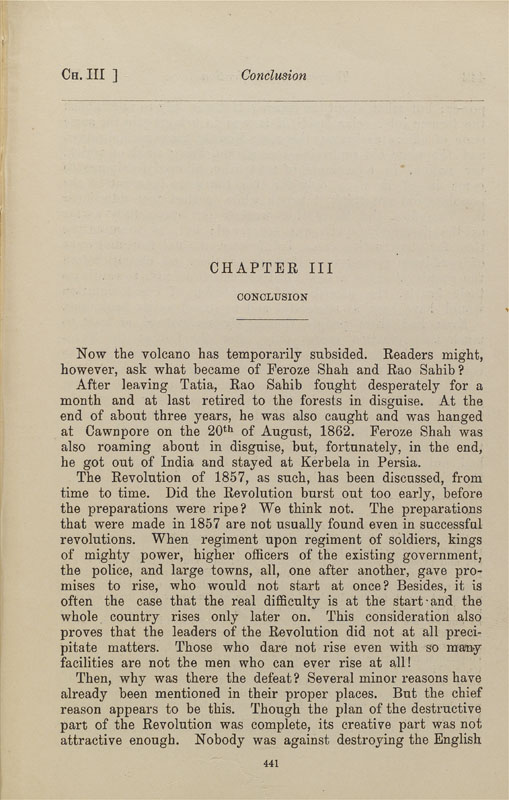Ch.III ]
Conclusion
CHAPTER III
CONCLUSION
Now the volcano has temporarily subsided. Readers might,
however, ask what became of Feroze Shah and Rao Sahib?
After leaving Tatia, Rao Sahib fought desperately for a
month and at last retired to the forests in disguise. At the
end of about three years, he was also caught and was hanged
at Cawnpore on the 20*^ of August, 1862. Feroze Shah was
also roaming about in disguise, but, fortunately, in the end,
he got out of India and stayed at Kerbela in Persia.
The Revolution of 1857, as such, has been discussed, from
time to time. Did the Revolution burst out too early, before
the preparations were ripe? We think not. The preparations
that were made in 1857 are not usually found even in successfnl
revolutions. When regiment upon regiment of soldiers, kings
of mighty power, higher officers of the existing government,
the police, and large towns, all, one after another, gave pro¬
mises to rise, who would not start at once? Besides, it is
often the case that the real difficulty is at the start-and the
whole country rises only later on. This consideration also
proves that the leaders of the Revolution did not at all preci¬
pitate matters. Those who dare not rise even with so mmhy
facilities are not the men who can ever rise at all!
Then, why was there the defeat? Several minor reasons have
already been mentioned in their proper places. But the chief
reason appears to be this. Though the plan of the destructive
part of the Revolution was complete, its creative part was not
attractive enough. Nobody was against destroying the English
441
|








